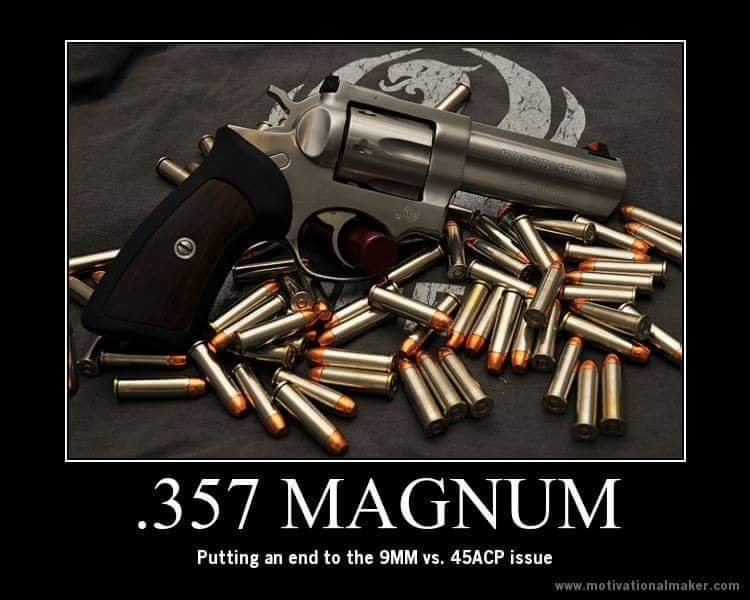BehindBlueI's
Grandmaster
- Oct 3, 2012
- 25,897
- 113
On these charts, you have to take 10MM with a grain of salt.
With 10MM you have low spec (might as well be 40S&W), and high spec (the original loading).
Still the good thing is, ether seems to work pretty well.
Also that sample size on that study, is way too damn small.
FWIW, I initially tried to track caliber and fatal/non-fatal shootings. I rapidly discovered that there are so many variables that it's largely a fool's errand without massive amounts of data, and even then it's a tough thing. 2 shootings is laughably stupid to even include.
Some variables are immediately obvious, such as where on the body the person is hit. Nobody who's not, again, laughably stupid, disputes there is no difference between a 9mm in the brain stem vs a .44 magnum in the brain stem. Both are instant bang-flops. Other variables are less obvious but become more clear as you actually work these cases. More people the police shoot survive, all things being equal (which they never are, but play along) because *they are immediately known to be shot and will get medical treatment sooner*. A broken ankle in the city is no big deal. A broken ankle in the desert a 3 day hike to a cell phone signal can be a death sentence. Gunshots are no different, people sometimes die from survivable injuries had they had faster or better access to medical care. Rural hospital with little trauma experience vs major metropolitan hospital who deals with trauma daily? Common sense which has better survival rates. We know which hospitals people shot walk out of at much higher rates even within the county. If I'm shot, take me to Eskenazi. I don't care if you drive past 4 other hospitals, take me to Eskenazi. What's that mean for these sorts of studies? Whatever caliber police are using will have artificially high survival rates comparatively based on immediate first aid, rapid access to advanced medical care, and transportation directly to a trauma center.
Where people shot directly or through intermediate barriers? If they were shot through, say, auto glass, was the bullet a bonded quality hollowpoint? A monolithic copper? A bulk jacketed soft lead? If it's going through glass first that matters way more than caliber.
The absolute best metrics you can get are large police departments who transition calibers. You can eliminate or reduce a lot of variables, since training and hit rates and hit locations should be roughly the same, access to medical care roughly the same, etc. Then get multi-year data and compare. That data has been pretty consistently showing that there is no discernible difference in common duty calibers. Now, you don't get to see much data outside the Holy Trinity of 9mm, .40S&W, and .45 Auto from those numbers for the obvious reasons.
People who are just running numbers who don't know what they don't know end up with useless take-aways.




 !
!

